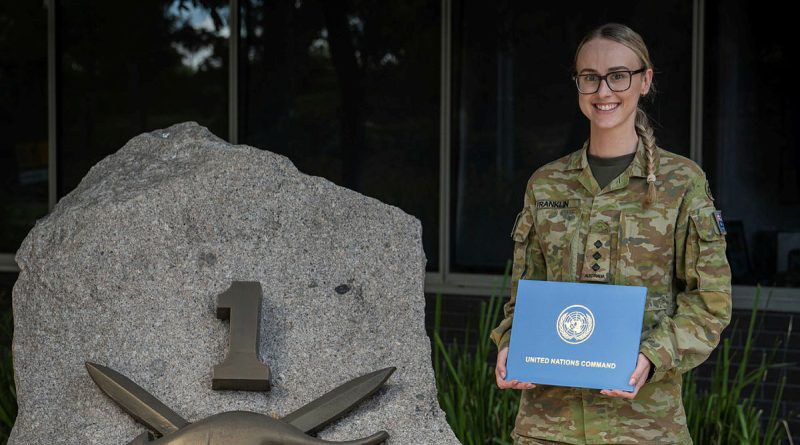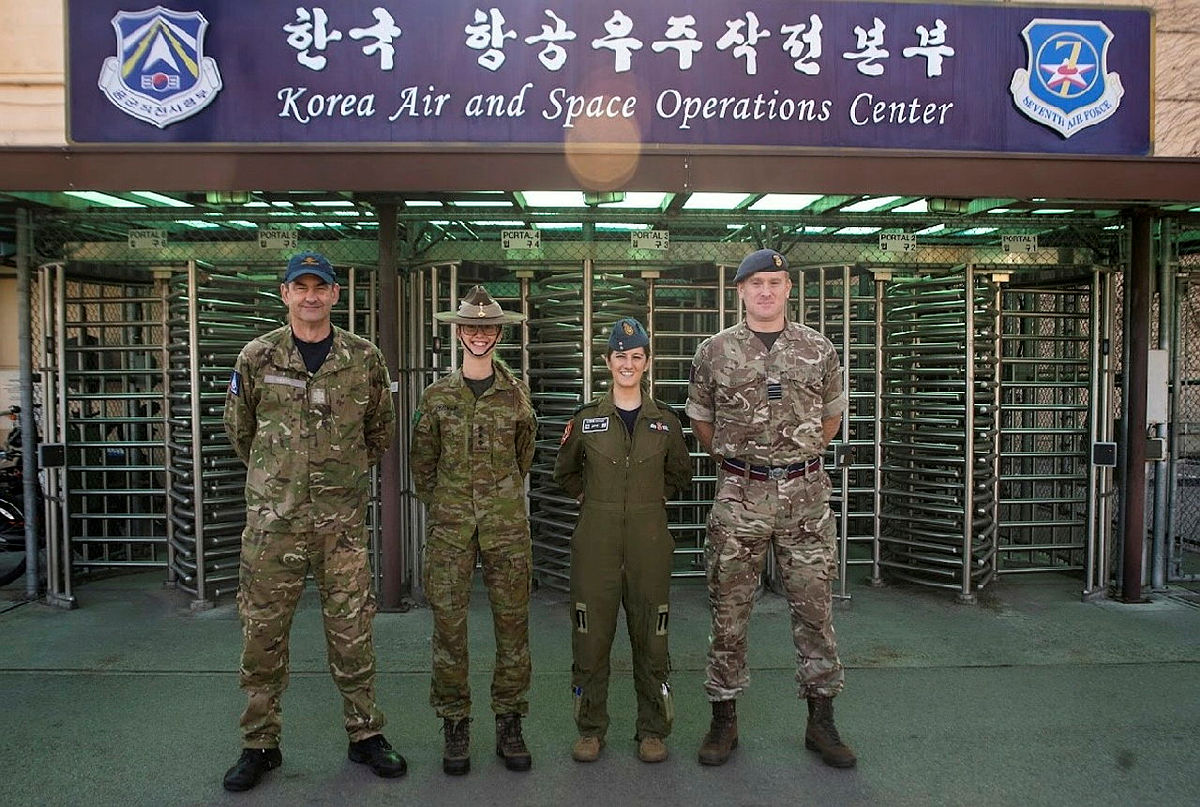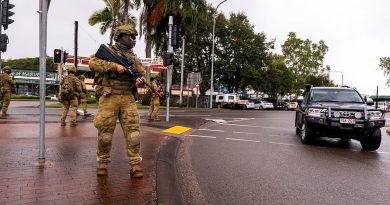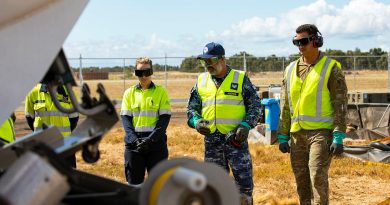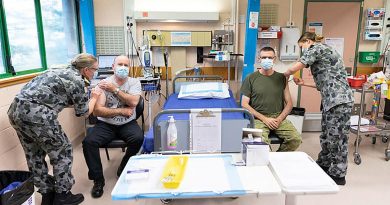Space planner’s role signals evolution of warfare
Share the post "Space planner’s role signals evolution of warfare"

Captain Bronte Franklin’s destiny was seemingly written in the stars, with her career as a Royal Australian Signals officer leading to her current role as a space operations planner.
CAPTION: Captain Bronte Franklin with her United Nations Award received during Exercise Freedom Shield, stands outside Headquarters 1st (Australian) Division, Gallipoli Barracks, Brisbane. Story by Captain Peter Nugent. Photo by Corporal Miguel Anonuevo.
Captain Franklin is the Space Operations Planner at Headquarters 1st (Australian) Division, based at Gallipoli Barracks in Brisbane.
ADF military planners are increasingly looking to the stars as they shape battlefield encounters, with space operations a key component of modern warfare.
One of the key roles of space planners is to examine how satellite technology can assist Australian forces on the ground, while mitigating the risks of adversary satellite actions.
“We are leveraging the capabilities of satellites,” Captain Franklin said.
“Satellites enable us to communicate, move and navigate, along with many other things. We use these capabilities to enable us to plan and execute operations and exercises.”
Captain Franklin’s role has taken on increased significance as the Army develops its space capabilities.
“Space is the ultimate high ground,” she said.
“I think a lot of people believe that space operations is a new concept, but really we’ve been relying on space for years. Space technology is constantly evolving and we’re adapting to new and exciting developments every day.”
Captain Franklin was part of the ADF contingent that took part in Exercise Yama Sakura 85, in Hokkaido, Japan, in December 2023, where she was in charge of a United States Army Space Support Team working alongside members of the Japan Ground Self-Defense Force.
It was the first time the US had allowed a foreign national to lead such a team on an exercise of this scale.
“A team of eight of us were able to feed space-enabled products and services into intelligence feeds and the targeting cycle,” Captain Franklin said.
“It was a great experience made better by having a strong team of passionate space professionals. I’m really proud of the team and relationships we have built as a result.
“One of my favourite parts of the role is being able to create and foster strong relationships with our international counterparts. We have a lot to learn from them and a lot to contribute from our own experiences.”
This year brought another multi-national engagement, with Captain Franklin joining counterparts from the United Nations, US and South Korea, who hosted Exercise Freedom Shield 24.
“My role in Exercise Freedom Shield was as a United Nations Command augment, performing the role of the combined air component command space integration team liaison officer,” she said.
“I had the opportunity to work with the space operations command team to identify capability or service gaps in the space integration team and reach back to the UN to understand if the UN member states, such as Australia, could provide products for us to fill those gaps.”
CAPTION: Australian Army Space Operations Planner Captain Bronte Franklin with international counterparts at Exercise Freedom Shield in the Republic of South Korea.
Captain Franklin’s work in South Korea was recognised with two achievement awards.
“I always knew that my career would be in Signals Corps,” she said.
“But I didn’t realise the avenues that would open up for me as a result of my signals background; I especially didn’t think it would be in space operations.
“I’ve been lucky to have had some great mentors and teams behind me to get me to where I am.
“I don’t believe it matters who you are or what your background is, if you’re interested in space operations then there’s some fantastic avenues you can pursue.”
.
.

.
.
Share the post "Space planner’s role signals evolution of warfare"

